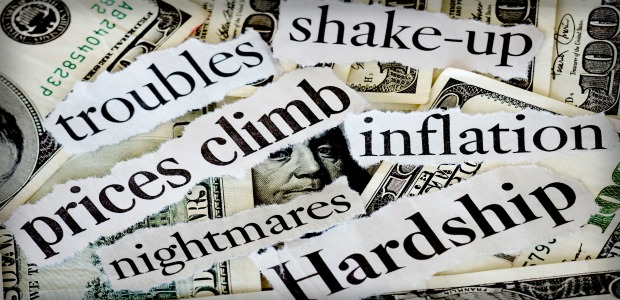What's the trouble with ignoring economic inequality

By Bloomberg
In an old Jackie Chan movie, our hero is being stalked by an opponent too big and tough to be fazed by kicks and punches. Retreating to a barn, Chan hurls every object he can think of in his assailant's direction, including half a dozen eggs.
John Cochrane's speech at a recent Hoover Institute conference on inequality reminds me a bit of Chan's everything-and-the-kitchen-sink assault -- he unleashes any and every counterargument against the idea that the U.S.'s widening income and wealth gaps require redistribution.
Some of Cochrane's points seem obviously true and right. The rise in income inequality within nations has been swamped by a huge decrease in inequality between nations. That's exactly what you'd expect from globalization. From a humanitarian standpoint, that pretty much rules out any attempt to restore the middle class in rich countries by shutting off trade. It also provides a reason to be optimistic about inequality in the long term. It means that economic growth probably causes income inequality to fall.
Cochrane, a University of Chicago economist, also makes the good point that there are many kinds of inequality, and not all of them can be addressed by redistribution. As a dying Soviet commissar laments in the movie "Enemy at the Gates," "there will always be rich and poor. Rich in gifts, poor in gifts. Rich in love, poor in love."
But these good points aside, Cochrane is too quick to dismiss concerns over inequality. One of his arguments is that it makes no sense to care about inequality:
Suppose a sack of money blows in the room. Some of you get $100, some get $10. Are we collectively better off? If you think "inequality" is a problem, no. We should decline the gift. We should, in fact, take something from people who got nothing, to keep the lucky ones from their $100. This is a hard case to make.
But in experiments, people do decline this gift, again and again. The Ultimate Game, which is exactly the situation Cochrane describes, is one of the most-repeated studies in economics, and it shows that -- in some situations, at least -- people do care deeply about inequality in exactly the way Cochrane says they shouldn't.
In general, economists try to avoid telling people what to want. If you really want a Lamborghini, we don't call that "greed" -- it's just what you like. Why should equality be any different? It's true that inequality aversion will generally make people less happy, so in that sense it's bad. But in any case, simply yelling at people "You shall not covet your neighbor's house" is unlikely to achieve big results.
It's true that today's mobile, isolated, spread-out society makes great wealth less visible than in the days of Marie Antoinette, and this is probably one reason that people are willing to tolerate higher levels of inequality than in years past. And the general richness of rich countries means that even the poor rarely starve, so even though income and wealth are more unequal, utility is probably less unequal than in the days when the poor would regularly revolt.
But that doesn't mean that people will never start to care about inequality. Maybe they will, and if they do, we should respect that preference just like we respect the desire for Lamborghinis.
Another thing that people probably care about is opportunity. People probably enjoy the feeling that they can get ahead if they work hard. But the farther apart the rungs get, the harder it becomes to climb the ladder -- at least, if people measure their success in relative terms, as many seem to do.
Cochrane is also too quick to dismiss the possibility of political instability. He writes:
The most common argument is that we have to reduce income inequality to avoid political instability. If we don't redistribute the wealth, the poor will rise up and take it. As a cause-and effect claim about human affairs, this is dubious amateur political science, one that would look especially amateurish to the political scientists and historians at this Hoover Institution on War, Revolution and Peace. Maybe the poor should rise up and overthrow the rich, but they never have.
Unfortunately, the evidence isn't as reassuring as Cochrane thinks. In a 1993 paper, Alberto Alesina and Roberto Perotti find that not only does income inequality tend to cause political unrest, it also seems to reduce investment. From their abstract:
Income inequality, by fueling social discontent, increases socio-political instability. The latter, by creating uncertainty in the politico-economic environment, reduces investment. As a consequence, income inequality and investment are inversely related. Since investment is a primary engine of growth, this paper identifies a channel for an inverse relationship between income inequality and growth.
The case isn't open and shut, of course. But there seems to be a real possibility that inequality can be bad for the health of a nation's economy. And even if it weren't, it may still be something that people care about. Inequality might not be the most pressing problem facing our nation, but it is a problem, and it can't be dismissed as blithely as many would wish.
Here we are to serve you with news right now. It does not cost much, but worth your attention.
Choose to support open, independent, quality journalism and subscribe on a monthly basis.
By subscribing to our online newspaper, you can have full digital access to all news, analysis, and much more.
You can also follow AzerNEWS on Twitter @AzerNewsAz or Facebook @AzerNewsNewspaper
Thank you!
